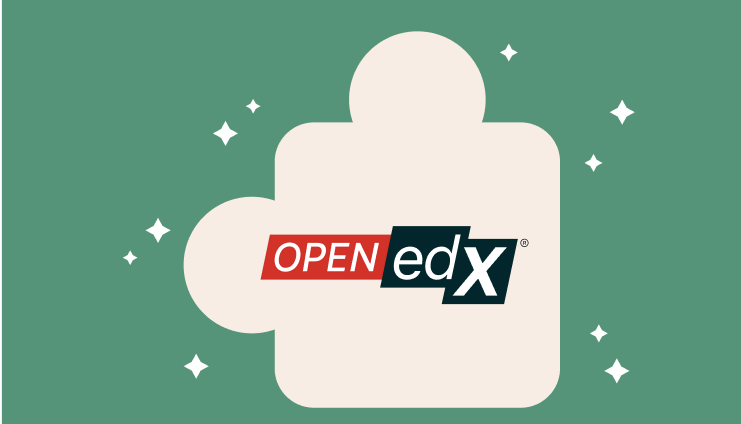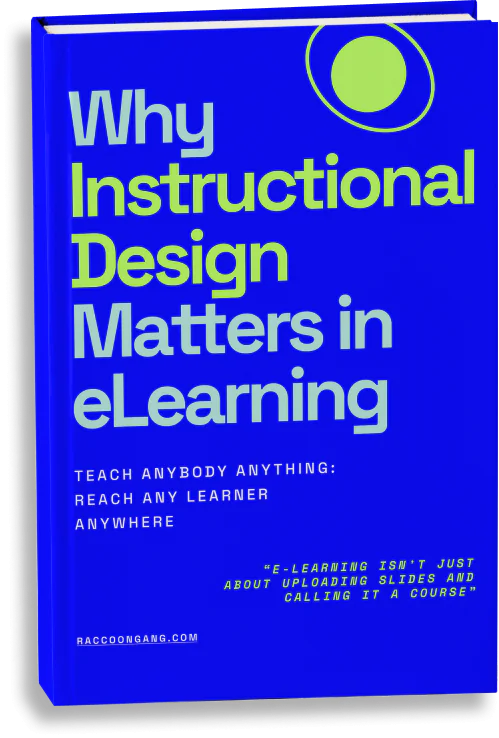According to the study, 78% of companies prioritize Learning and Development (L&D) as a top C-Suite concern, yet 4 out of 5 organizations are falling behind in various L&D areas. Furthermore, while most organizations recognize the value of learning in the flow of work, only 12% effectively implement it. Organizations can centralize training, track progress, and promote continuous learning with a suitable LMS. This comprehensive guide will explore the top LMS options for corporate training in 2025, enabling you to choose the ideal solution that aligns with your company’s objectives. Let’s dive into the features and benefits of the leading LMS platforms explicitly designed for corporate training, empowering your workforce to acquire new skills and excel in their roles.
What Is a Corporate LMS?
Organizations gain benefits such as enhanced training program effectiveness by utilizing corporate learning management systems (LMS). But what exactly is a corporate learning management system? At its core, a corporate LMS is a software platform designed to streamline, manage, and deliver training and development initiatives within a company.
The primary purpose of a corporate LMS is to facilitate efficient training and development processes while ensuring a consistent learning experience across the organization. These platforms offer a diverse set of features, such as content authoring tools, learner progress tracking, performance analytics, and collaboration capabilities, all tailored to meet the specific needs of corporate learning.
Corporate learning management systems (LMS) are the cornerstone of achieving organizational and individual learning goals. From an organizational standpoint, these systems bring standardization to training procedures, ensuring that every employee receives consistent and high-quality learning experiences. For example, a global company can use LMS development services to deliver training modules across multiple locations, guaranteeing that employees are equipped with the same knowledge and skills.
By granting employees easy access to a vast repository of training materials, LMS platforms empower individuals to pursue self-paced learning and continuous skill development. For instance, an employee seeking to acquire a new language skill can use the LMS to access language courses and practice materials conveniently.
Moreover, the best LMSs for corporate training facilitate compliance with industry regulations by providing features such as automated certifications and assessments. This ensures that employees meet the requirements and maintain regulatory compliance, whether it’s in areas like data security, workplace safety, or industry-specific regulations. Explore our real-life case study showcasing the implementation of LMS for corporate training.
Top LMS Platforms for Corporate Training in 2025
When it comes to selecting the best learning management system (LMS) for corporate training, making an informed decision is paramount. Let’s explore the top 5 LMS platforms for corporate training and their distinguishing features.
Open edX
Open edX is a highly acclaimed open-source LMS platform known for its versatility and scalability. It offers robust features such as content authoring tools, interactive learning modules, and comprehensive analytics. Open edX stands out for its ability to deliver personalized learning experiences through its customizable interface, allowing organizations to tailor the platform to their training needs. With its strong community support and integration capabilities, Open edX provides a superior choice for corporate learning.
Open edX, with its robust and adaptable features, caters to a diverse range of organizations seeking to establish a powerful and effective LMS. From LMS for public sector organizations and educational institutions to non-governmental organizations (NGOs) and private enterprises, Open edX offers a versatile platform that can be tailored to meet the specific needs and objectives of various organizational types.
| Open edX | |
| Advantages | Disadvantages |
|
|
| Key Preferences | |
| Highly versatile and scalable, with a customizable interface that allows organizations to tailor the platform to their specific training needs | |
Moodle
Moodle is a widely used LMS platform that offers a user-friendly interface and a range of features. It supports collaborative learning, interactive assessments, and extensive reporting capabilities. Moodle is known for its adaptability and customizable nature, making it suitable for organizations of all sizes.
| Moodle | |
| Advantages | Disadvantages |
|
|
SAP Litmos
SAP Litmos is a cloud-based LMS platform that offers a comprehensive set of features for corporate training. It provides flexible content creation, blended learning options, and robust reporting and analytics. SAP Litmos stands out for its ease of use and scalability, making it suitable for organizations seeking a hassle-free LMS solution for their training needs.
| SAP Litmos | |
| Advantages | Disadvantages |
|
|
TalentLMS
TalentLMS is a cloud-based LMS platform designed to simplify corporate training. It offers a user-friendly interface, mobile compatibility, and a range of features such as course creation, progress tracking, and social learning. TalentLMS is known for its intuitive design and ease of use, making it an excellent choice for organizations seeking a straightforward and accessible LMS solution.
| TalentLMS | |
| Advantages | Disadvantages |
|
|
Docebo
Docebo is a feature-rich LMS platform that combines user-friendly design with robust functionality. It offers a range of features, including content creation, gamification, and AI-powered recommendations. Docebo’s emphasis on user engagement and personalized learning paths makes it an appealing choice for organizations focused on employee development.
| Docebo | |
| Advantages | Disadvantages |
|
|
These 5 LMS platforms provide distinct advantages for corporate training. Organizations should consider factors such as scalability, customization, user-friendliness, and features when selecting the ideal platform that aligns with their specific training needs. Open edX is the top choice due to its versatility and scalability. For example, its customizable interface allows organizations to tailor the platform precisely to their training requirements, ensuring a personalized and practical learning experience for employees.
Benefits of Implementing Corporate LMS Platforms
Implementing a corporate learning management system (LMS) in your organization brings a multitude of benefits, enhancing employee training and development initiatives. Let’s delve into the specific advantages that corporate LMS implementation offers.
Enhanced Learning Efficiency
Corporate LMS platforms streamline the learning process, allowing employees to access training materials anytime, anywhere, and at their own pace. This efficiency translates to faster onboarding, upskilling, and reskilling of employees, leading to a more competent and agile workforce.
Cost Savings and Centralized Training Management
By implementing a corporate LMS, organizations can significantly reduce training costs. Traditional classroom-based training often incurs expenses related to instructor fees, travel, accommodation, and printed materials. Moreover, a corporate LMS like Open edX serves as a centralized hub for managing all training activities. It provides administrators with a comprehensive overview of employee progress, enabling efficient tracking and reporting. This level of oversight ensures consistent and standardized training across the organization, aligning employees with the company’s goals and objectives.
Continuous Learning and Skill Development
Corporate LMS platforms promote a culture of continuous learning and skill development. Through its vast library of resources, employees can access diverse courses, webinars, and collaborative learning opportunities. This empowers them to acquire new skills, stay updated with industry trends, and enhance their professional growth.
Improved Employee Engagement and Retention
Implementing a corporate LMS demonstrates a commitment to employee growth and development, significantly boosting engagement and job satisfaction. Engaging and interactive training experiences offered by platforms like Open edX motivate employees to invest in their professional advancement, leading to higher retention rates and reduced turnover costs.
Data-Driven Decision Making
By analyzing data on course completion rates, assessment scores, and learner engagement, organizations can make data-driven decisions to optimize their training strategies. This data-driven approach enhances the overall effectiveness of training programs and helps align them with business objectives.
By implementing a corporate LMS platform, organizations can experience a wide range of benefits, including enhanced learning efficiency, cost savings, centralized training management, continuous learning opportunities, improved employee engagement and retention, and data-driven decision-making. Open edX, as a leading corporate LMS platform, further amplifies these benefits with its versatile features and customizable learning experiences.
Key Features of Corporate Learning Management Systems
The best LMSs for corporate training are equipped with features designed to facilitate effective training and development initiatives. Let’s explore the common features found in corporate LMS tools, along with easy-to-understand examples, to demonstrate their functionalities.
Content Management
Corporate LMS platforms provide robust content management capabilities, allowing organizations to create, upload, and organize training materials. For example, imagine a company that uses an LMS to upload interactive video tutorials, slide presentations, and quizzes for employees to access at their convenience.
Learner Management
LMS tools offer learner management functionalities that allow organizations to manage user accounts, track learner progress, and assign training modules. For instance, a company can use an LMS to create personalized learning paths for each employee, tracking their progress, and assigning relevant courses based on their roles and development needs.
Assessment and Evaluation
Corporate LMS platforms include assessment and evaluation features to measure learner knowledge and skills. These tools enable organizations to create quizzes, tests, and assignments to assess learner understanding. For example, an LMS can automatically grade multiple-choice quizzes, provide immediate feedback, and track individual performance over time.
Collaboration and Communication
LMS tools foster collaboration and communication among learners and trainers. These platforms offer discussion forums, chat functionality, and social learning features, promoting learner interaction, knowledge sharing, and peer-to-peer collaboration. For instance, employees can engage in virtual group discussions, share insights, and collaborate on projects using an LMS’s communication features.
Reporting and Analytics
Corporate LMS platforms provide reporting and analytics functionalities to monitor the effectiveness of training programs and learner performance. These tools generate comprehensive reports on completion rates, assessment scores, learner engagement, and more. For example, an LMS can generate detailed reports showcasing employees’ progress, allowing organizations to identify areas of improvement and make data-driven decisions to optimize their training strategies.
Integration and Customization
LMS platforms often support integration with other software systems, enabling seamless data transfer and enhancing the overall learning ecosystem. Integration capabilities allow organizations to integrate their LMS with HR systems, content authoring tools, video conferencing platforms, and more. For instance, an LMS can integrate with an organization’s HR system to automatically sync employee data and provide a unified learning experience.
3 Unique Open edX Features
1. Adaptive Learning Paths
Open edX provides adaptive learning paths, allowing organizations to customize the learning journey for each employee based on their existing knowledge and skills. This personalized approach ensures that learners receive targeted content and can progress at their own pace, maximizing their learning outcomes.
2. Gamification Elements
According to research, an overwhelming majority of 67% of students expressed significantly higher motivation and engagement with gamified learning compared to traditional course formats.
Open edX Platform incorporates gamification elements, such as badges, leaderboards, and achievements, to enhance learner engagement and motivation. By adding game-like elements, Open edX makes the learning experience more enjoyable and encourages healthy employee competition.
3. Open-Source Flexibility
Open edX is an open-source LMS, meaning organizations can customize and modify the platform according to their specific requirements. This flexibility allows businesses to adapt Open edX to their unique training needs, integrate it with existing systems, and extend its functionalities as their training programs evolve.
Why Open edX is the Best LMS for Corporate Learning
When it comes to corporate learning, Open edX stands out as the premier choice among LMS platforms. Here’s why Open edX excels in meeting the needs of organizations and driving corporate learning initiatives.
Mobile Access
Open edX offers seamless mobile access, enabling employees to engage in learning anytime, anywhere, and on any device. This mobile compatibility ensures that training materials are readily available, allowing employees to learn on the go and fit learning into their busy schedules. Unlock the full potential of Open edX with cutting-edge mobile applications.
Employee Performance Analysis
With Open edX’s robust analytics and reporting features, organizations gain deep insights into employee performance. Organizations can identify areas of improvement and tailor training programs by analyzing data on course completion rates, assessment scores, and learner engagement.
Cost-Effectiveness
Open edX provides a cost-effective solution for corporate learning. Organizations can adopt Open edX as an open-source platform without incurring expensive licensing fees.
User-Friendly Interface
Open edX boasts a user-friendly interface that ensures easy navigation and a seamless learning experience. Its intuitive design simplifies the learning process, making it easy for employees to access courses, track progress, and engage with learning materials.
Rich Communication and Collaboration Options
Open edX offers communication and collaboration features, facilitating interaction and knowledge sharing among learners and trainers. With discussion forums, chat functionality, and social learning features, employees can engage in meaningful discussions, seek clarifications, and collaborate on projects.
Open edX is also considered an excellent alternative to Blackboard, providing similar functionalities with added flexibility and customization options.
By combining mobile access, employee performance analysis, cost-effectiveness, a user-friendly interface, and rich communication and collaboration options, Open edX sets itself apart as the best LMS for corporate learning.
Raccoon Gang Expertise: LMS Integration
A learning platform isn’t truly complete until it connects with the tools your team already uses. At Raccoon Gang, we specialize in end-to-end LMS integration to ensure your system works smoothly across departments—from content management to training analytics.
For example, our process includes:
- Analysis to understand your goals and infrastructure,
- Customization to match platform functionality to your exact needs,
- Deployment with minimal disruption to your operations,
- and ongoing support to keep everything running and growing.
We integrate essential tools like your CMS, HRM, and CRM into your LMS. And you find yourself in a winning position because your learning experience works as one connected system.
LMS Integration Services We Provide
| Service | What It Means for You |
| E-commerce Integration | We connect your LMS to payment gateways and storefronts—so you can sell courses, offer subscriptions, and automate transactions without extra tools. |
| CRM Integration | We bring training progress into your CRM, so your team sees what customers are learning and can support them better. |
| CMS Integration | We align your LMS with your website and content system, so your brand, voice, and visuals stay consistent across platforms. |
| AI Assistant | We add AI tools that suggest content and adapt to learners, so every user gets a more personalized learning path. |
| Career Platform Integration | We connect learning to career tools, so users can build skills that lead directly to job opportunities. |
| Mobile Application Integration | We bring your LMS to mobile apps, so your learners can train anytime, anywhere, on any device. |
Conclusion
In conclusion, implementing a corporate learning management system (LMS) is essential for organizations aiming to enhance their training and development initiatives. Throughout this comprehensive guide, we have explored the importance of corporate LMS platforms, discussed key features, and highlighted the benefits they offer.
Open edX, as an exemplary LMS, has proven its superiority in the realm of corporate learning. With its mobile access, robust employee performance analysis, cost-effectiveness, user-friendly interface, and rich communication and collaboration options, Open edX stands out as the premier choice for organizations seeking to drive effective corporate learning.
With the features of Open edX or other LMS platforms, organizations can streamline their training processes, personalize learning experiences, boost employee engagement and performance, and optimize their training strategies. Collaborating with a skilled instructional design company can further enhance your corporate learning program by developing tailored, high-impact content that aligns with your business goals.
Use the opportunities LMS presents for nonprofit platforms and initiate the process of nurturing a skilled, engaged, and high-performing workforce.
FAQ
What makes a good LMS for corporate training?
>It is safe to say that a good LMS for corporate training supports clear reporting, scalable course delivery, multiple user roles, and easy integration with tools like HR systems and CRMs.
Why choose Open edX over a commercial LMS?
Open edX is an open-source platform. This means your budget won’t be affected by service licenses or unnecessary fees. You can expand the platform’s functionality as needed, adding the blocks you want—or even developing your own. You won’t have that flexibility with a proprietary solution.
Which LMS supports compliance and analytics?
Platforms like Open edX, Moodle, and others support compliance tracking and detailed analytics—especially when paired with custom dashboards and tools like RG Analytics.
How long does it take to implement an LMS?
Depending on complexity, required integrations, and content readiness, you should expect implementation to take up to 12 weeks.
Can Raccoon Gang integrate LMS with mobile apps?
Yes, we integrate LMS platforms with mobile apps—so your learners can access training anytime, on any device, with full tracking and syncing.
What are the cost models for corporate LMS?
Costs vary based on hosting, customization, and user volume. Open-source platforms like Open edX reduce licensing costs and shift investment toward custom features and long-term support.
- What Is a Corporate LMS?
- Top LMS Platforms for Corporate Training in 2025
- Benefits of Implementing Corporate LMS Platforms
- Key Features of Corporate Learning Management Systems
- 3 Unique Open edX Features
- Why Open edX is the Best LMS for Corporate Learning
- Raccoon Gang Expertise: LMS Integration
- Conclusion











